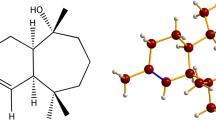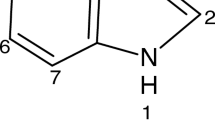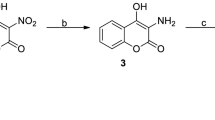Abstract
Goldin et al. 1 and Humpreys et al. 2 have stated that reserpine treatment in mice bearing transplanted leukæmia L 1210 caused regression of neoplasm and prolonged the survival time of these animals. These observations have directed attention to other tranquillizers as possible anticarcinogenic drugs. The growth of sarcoma 37 was inhibited by chlorpromazine treatment3. However, according to Cranston4 some tranquillizers belonging to the phenothiazine group did not show any inhibitory effects on mammary adeno-carcinomas in mice.
This is a preview of subscription content, access via your institution
Access options
Subscribe to this journal
Receive 51 print issues and online access
$199.00 per year
only $3.90 per issue
Buy this article
- Purchase on Springer Link
- Instant access to full article PDF
Prices may be subject to local taxes which are calculated during checkout
Similar content being viewed by others
References
Goldin, A., Burton, R. N., and Venditti, J. M., Science, 125, 156 (1957).
Humpreys, S. R., Venditti, J. M., Mantel, N., and Goldin, A., Proc. Amer. Assoc. Cancer Res., 2, 215 (1957).
Belkin, M., and Hardy, W. G., Science, 125, 233 (1957).
Cranston, E. M., Cancer Res., 18, 897 (1958).
Author information
Authors and Affiliations
Rights and permissions
About this article
Cite this article
CHORAZY, M. Effect of Chlorpromazine on Crocker Sarcoma and Ehrlich Ascites Carcinoma. Nature 184, 200–201 (1959). https://doi.org/10.1038/184200a0
Issue Date:
DOI: https://doi.org/10.1038/184200a0
This article is cited by
-
Effect of chloropromazine on growth of transplantable melanomas and on their response to x-ray irradiation
Bulletin of Experimental Biology and Medicine (1973)
-
Effect of Iproniazid on the Antileukæmic Action of Reserpine
Nature (1961)
Comments
By submitting a comment you agree to abide by our Terms and Community Guidelines. If you find something abusive or that does not comply with our terms or guidelines please flag it as inappropriate.



